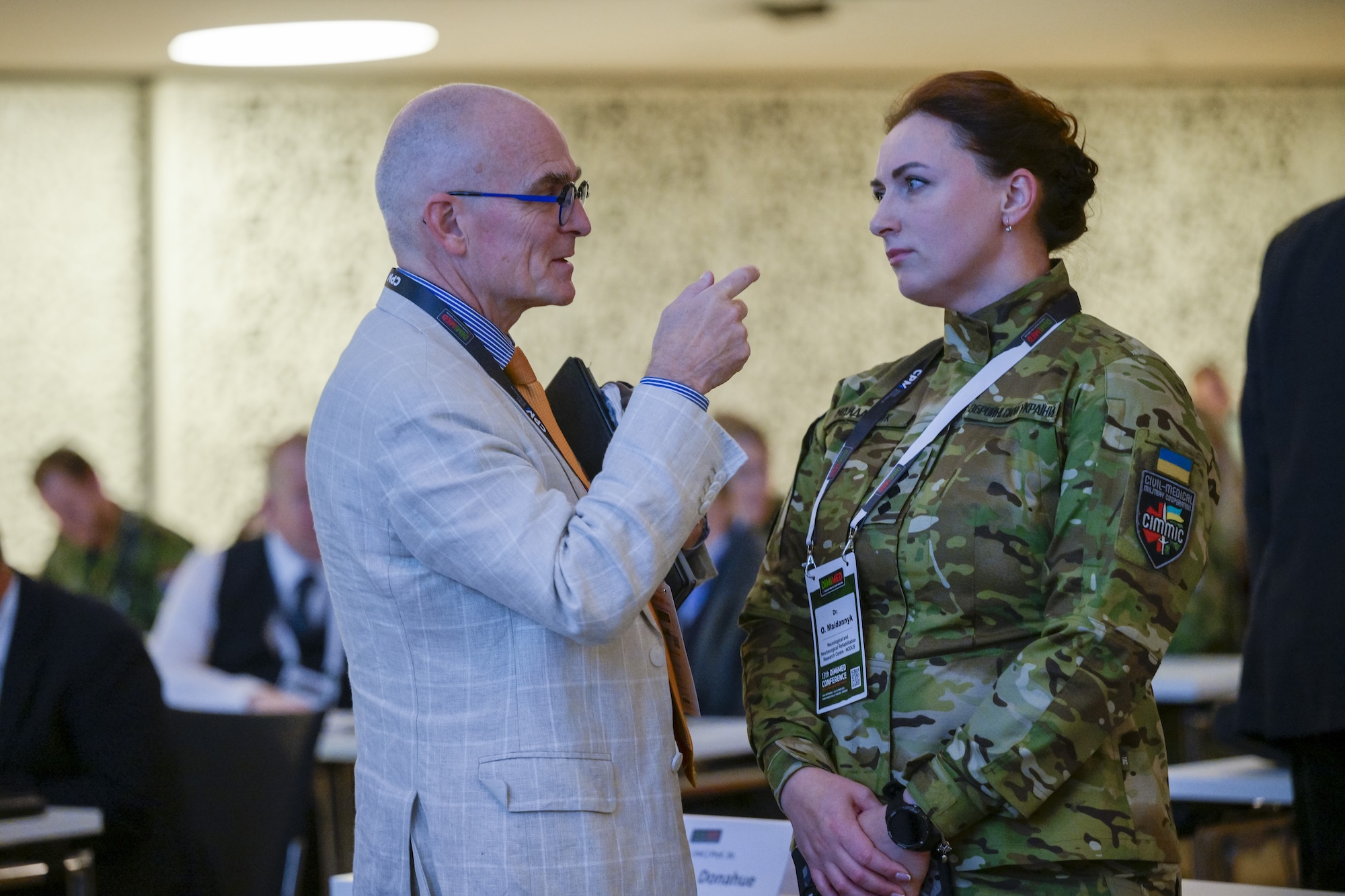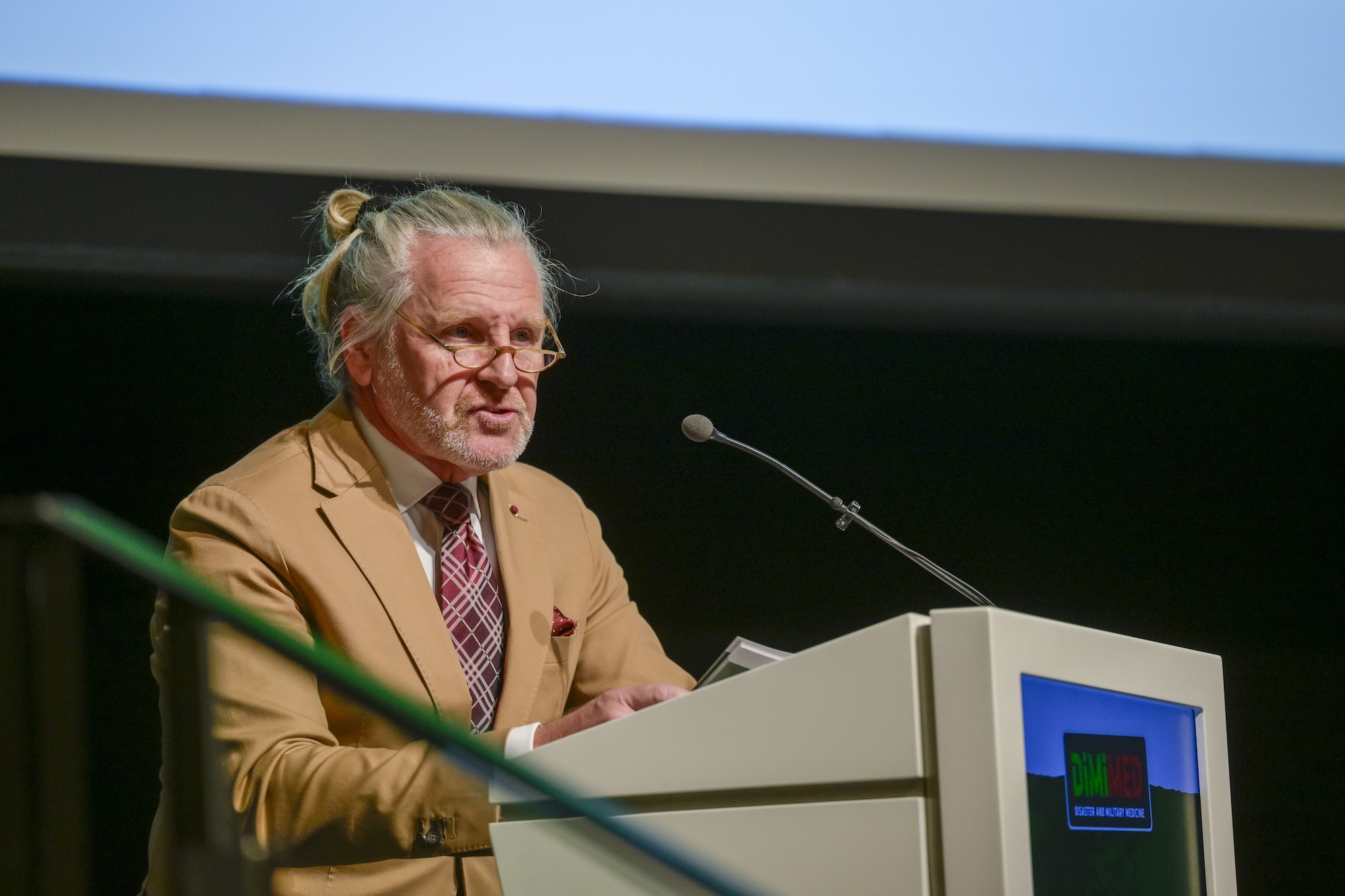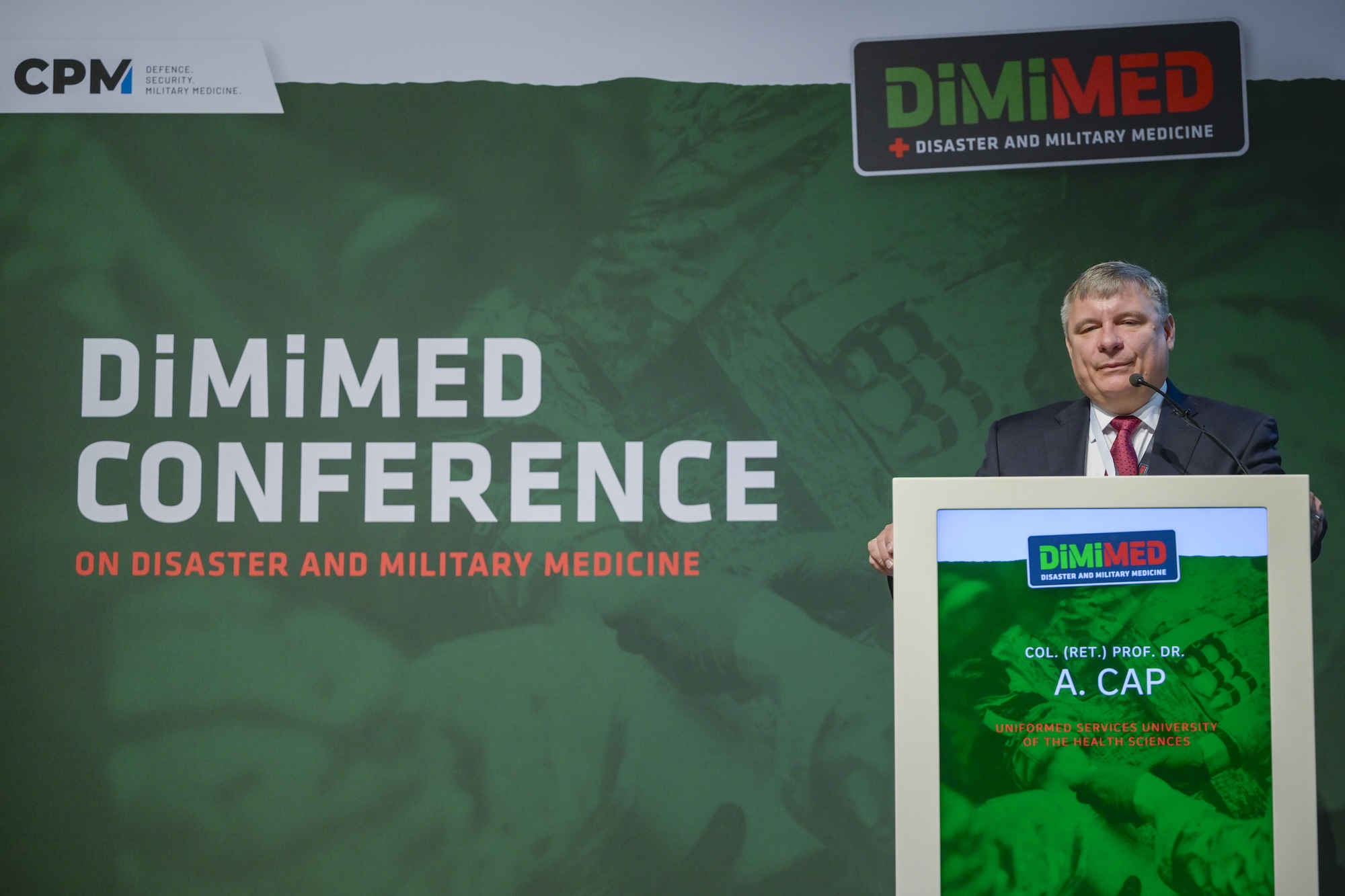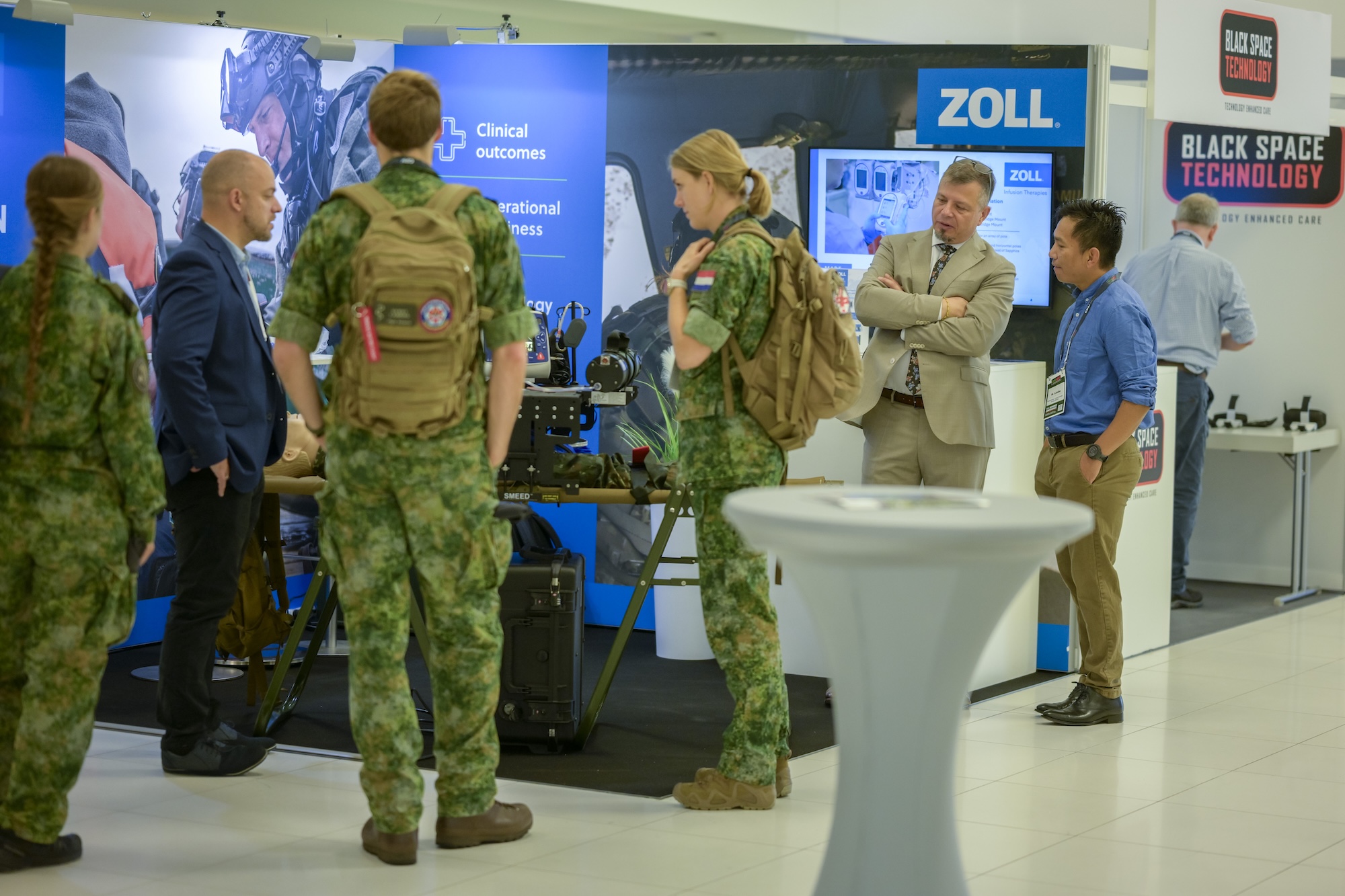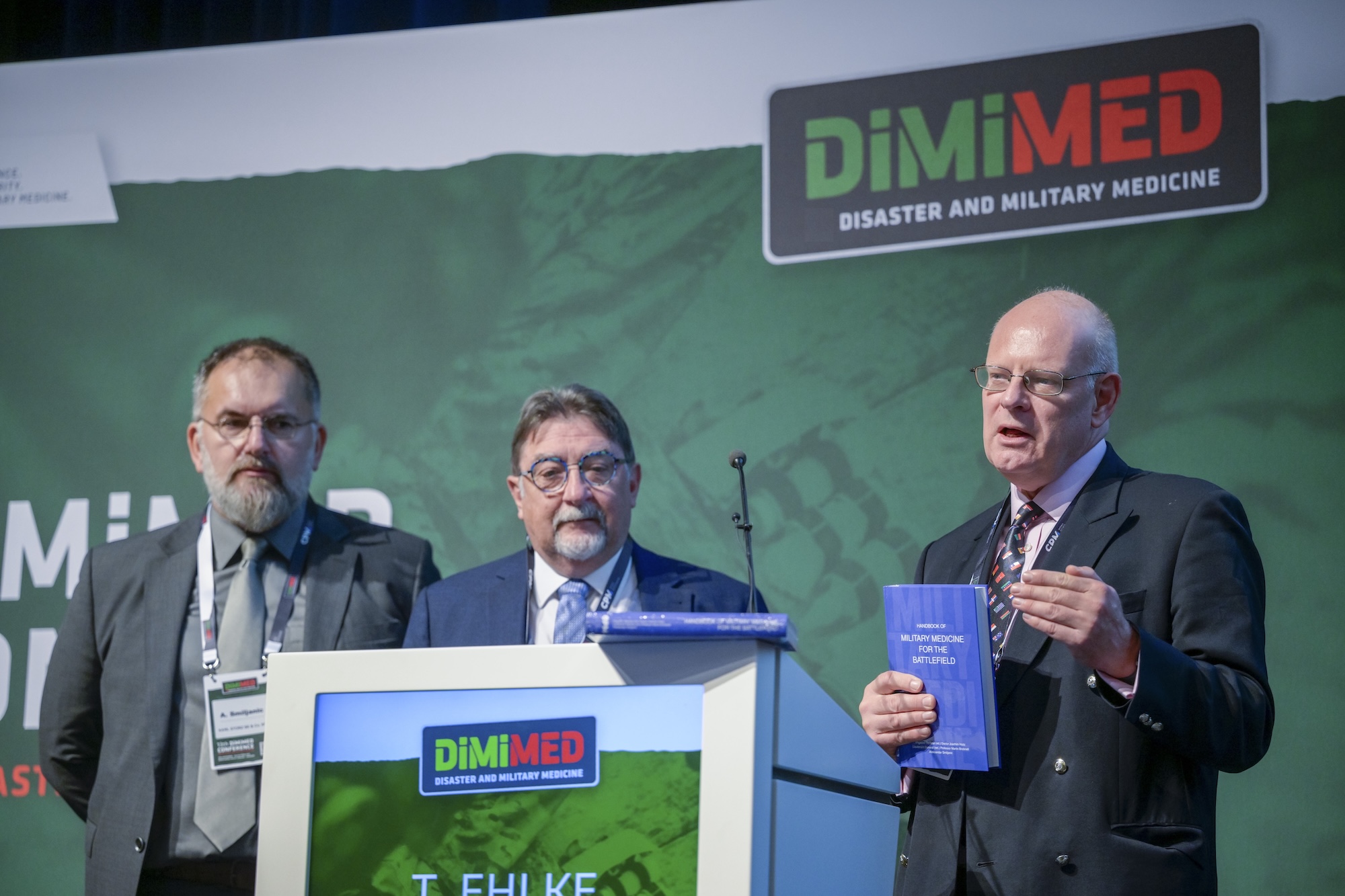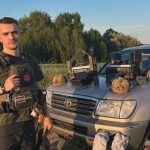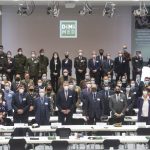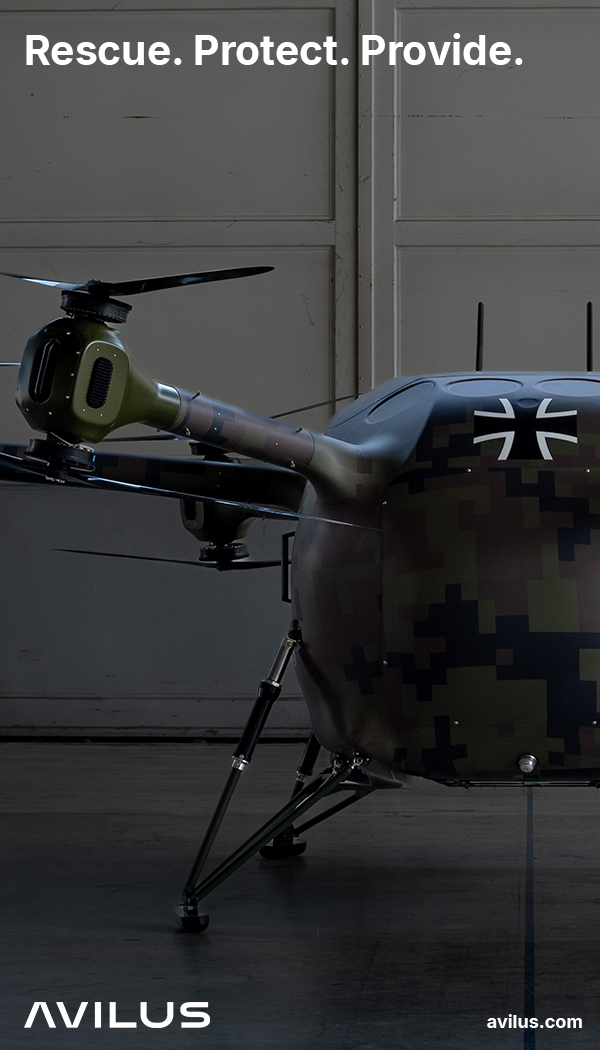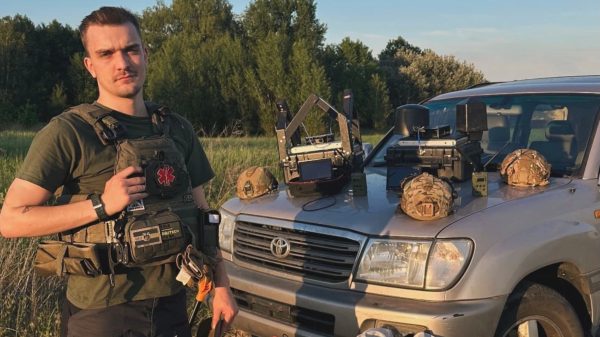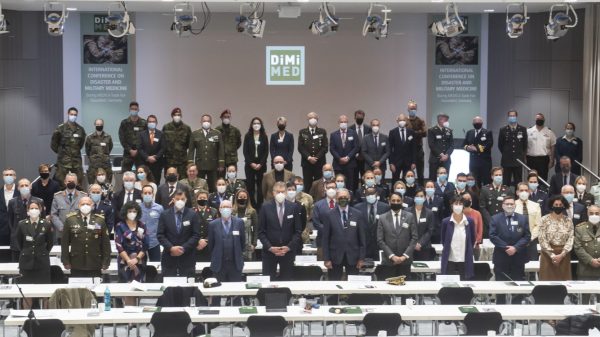‘We cannot predict the next crisis, but we can prepare for a new decade,’ said Dr. Erwin Dhondt Brigadier General (ret), former Director General of Health and Wellbeing for the Belgian Armed Forces, in Koblenz. The theme of this year’s 13th DiMiMED Conference, ‘Anticipating the Unknown – Preparing for the Future,’ was well chosen. Under this heading, around 200 participants from 24 countries discussed current developments in disaster and military medicine this week.
‘Take a look at the world around us,’ Brigadier General Dhondt urged participants at this year’s DiMiMED. ‘In Ukraine, doctors are working under relentless rocket attacks, performing operations in basements while hospitals have no electricity. In Gaza, there are so many military and civilian casualties that every medical action is also an ethical decision.’
These are challenges for military medicine that are unprecedented in previous scenarios. So what do Western armed forces need to prepare for? In what direction should they train their personnel; what equipment should they procure? These questions are currently being discussed in Koblenz. As so often, Ukraine serves as an example.
‘We cannot prevent every attack,’ Dhondt stated soberly, ‘but we can develop systems that offer advantages, adapt and enable control. And we cannot constantly rely on doctrines written for the wars and disasters of yesterday, because human lives are at stake.’
Previous experiences in military medicine now obsolete
‘We have practically flooded this country with medical evacuation capacities,’ said Prof. Dr. Andre Cap, MD, PHhD, recalling previous experiences in Afghanistan and Iraq. The former colonel in the US Armed Forces gave the medical keynote speech at DiMiMED at the beginning of the first day of the event.
In it, he first recapitulated his experiences in the Middle East, where the 10-1-2 rule was followed. Wounded soldiers were to be evacuated within 10 minutes by comrades in combat, then within the first hour by medics, and within two hours to a medical facility. Thanks to the widespread availability of helicopters, these time estimates for evacuating the wounded were significantly undercut.
As a result, enormous resources had to be expended in the wars in the Middle East. Resources that are not available in Ukraine – the great battlefield of our time. Experience from Afghanistan and Iraq can only be applied to Ukraine to a limited extent, if at all.
In Afghanistan, US soldiers had to deal with 10 casualties per day – in Ukraine, the figure is 1,000. In Afghanistan, helicopters were used for MEDEVAC – in Ukraine, this is not feasible due to the threat of drones.
Blood – human fuel
‘In general, the key to successfully rescuing wounded soldiers is to get blood back into the patient as quickly as possible,’ said retired Colonel Dr Cap at DiMiMED. Blood reserves are therefore used in the treatment of most cases of military injuries.
According to Dr Cap, blood is the most important human fuel. As with diesel, the armed forces must ensure that the logistics chain for blood is also in place at the front line. Transporting blood by human means is currently too dangerous on the Ukrainian front, so blood reserves are delivered to the trenches by drone.
Cap is convinced that there are not enough doctors in wartime. ‘We are not prepared for a major conflict or a major disaster,’ said retired Colonel Dr Cap soberly. Since World War II, the US has understood that combat medics are essential on the battlefield – soldiers who have additional advanced medical training to provide first aid to the wounded in action.
These medics must be trained in other armed forces in order to be able to handle high numbers of casualties. Ukraine understood this and implemented it very quickly.
In addition, bureaucracy and legal hurdles in European countries could have fatal consequences in an emergency. While laws were changed in Ukraine during the war to allow soldiers on the front line to perform blood transfusions, it could already become a legal problem within NATO if US soldiers are injured on the eastern flank and need to be supplied with German blood reserves in Belgium.
Dr Cap is convinced that it is extremely important to set the regulatory course now.
Book release at DiMiMED: Handbook of Military Medicine
His appeal is likely to meet with approval from the DiMiMED audience – but it is questionable to what extent it will reach legislators. In any case, Dr Cap’s presentation at the conference made it clear how many different directions military medicine is thinking in, and needs to think in.
The ‘Handbook of Military Medicine for the Battlefield’, which was presented this morning in Koblenz, is intended to serve as a support. ‘We hope that we have created a European equivalent to the American “Fundamentals of Military Medicine”,’ said retired Lieutenant General Prof. Martin Bricknell, presenting the basic idea behind the book.
The American work from 2019 is a good reference work, but too comprehensive for a handbook. In addition, the book focuses too much on the United States.
Prof. Bricknell is responsible for the book, published by CPM Verlag, together with retired Brigadier General Dr Joachim Hoitz and Aleksandar Smiljanic. A wide range of authors from 12 countries contributed content to the book.
‘I think it’s a quick way to look up what others are doing in the field of military medicine,’ said retired Brigadier General Dr Hoitz with conviction.
CPM – Military medicine in focus
CPM Verlag itself is also sharpening its focus on military medicine. In addition to the publication of the book and the DiMiMED event as an international conference, the new website military-medicine.com went online yesterday.
The new portal is intended to combine the previous contact points Wehrmedizin (German) and Military Medicine (English) in a new design. The platform will be offered in two languages.
In its first few hours, DiMiMED 2025 is already demonstrating how quickly the framework conditions for military and disaster medicine are changing as a result of the war in Ukraine.
Proven concepts from previous conflicts are no longer sufficient to meet today’s challenges. Only through international cooperation, innovative training programmes and the courage to implement regulatory reforms can military medicine remain fit for the future.

